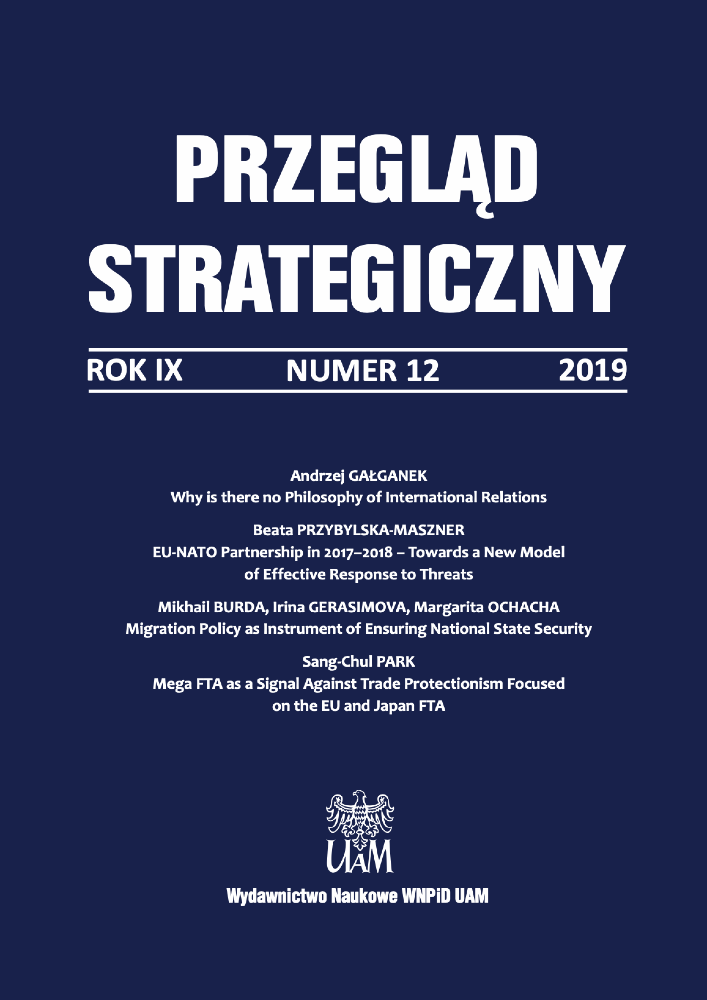Abstract
Most researchers believe that states which are rich in natural resources are more able to maintain political stability in comparison to countries without such an access to exceptional profits. However, some rent resource autocracies are unanimously considered fragile, and their ability to extract maximum rents does not always contribute to political and economic security during price fluctuations. Based on the idea that the state’s ability to extract resources imposes on it certain ob- ligations, the research question touches upon the quality of governance as a supposed core factor, which mediates the resource dependence and political security in terms of stateness and the ability to fulfil the “social contract.” The latter is described as implementation of political decisions, provision of public goods and services. However, the quality of governance is substantially different in various autocratic systems. Using casestudy and descriptive statistics, the authors try to reveal the context and ascertain which factors trigger the horizon length of autocrats` political strategies during rising and falling resource prices. The authors affirm that resource dependence negatively affects political security less due to an absence of economic growth during price breaks, and more due to the struggle of political elites for the redistribution of resources, absence of disciplinary mechanisms, weak representation and accountability systems, and poor enabling environments as a basis for quality of resource management. The authors conclude that political security in autocratic resource economies is achieved through the coexistence of political will and triggers, conducive to specifying the length of the planning horizon.
References
Alexeev M., Condrad R. (2009), The elusive curse of oil, “The review of Economics and Statistics,” Vol. 91(3).
Besley T. J., Kudamatsu M. (2007), Making Autocracy Work, Centre for Economic Policy Research.
Blyth H. (2018), Scraping the barrel: oil-dependent Venezuela. In freefall. Fragile States Index 2018 Report.
Braginskii O. B. (2008), Oil prices: its history, forecast and the impact on the economy, “Rossiiskii khimicheskii zhurnal (ZhRKhO im. D. I. Mendeleeva)” [“Russian chemical journal (Men- deleev Russian Chemical Society)”], No. 6.
Caselli F. (2006), Power Struggles and the Natural Resource Curse, LSE Research, London School of Economics.
Charron N., Lapuente V. (2011), Which Dictators Produce Quality of Government?, “Studies of Comparative International Development,” No. 46(4).
Cuaresma J. C., Oberhofer H., Raschky P. (2011), Oil and the duration of dictatorships, “Public Choice,” No. 148.
Ellman M. (1981), Natural Gas, Restructuring and Re-Industrialization: The Dutch Experience of Economic Policy, Academic press, London.
Fish S., Wittenberg J. (2009), Failed Democratization, in: Democratization, (eds.) C. Haerpfer, R. Inglehart, C. Welzel, Oxford University Press, London.
Flyvbjerg B. (2005), О недоразумениях, cвязанных c rейс-cтади (Five Misunderstandings about Case-Study Research), “Sociologhicheskye Issledovanya,” No. 4, Russian translation by Nikolai V. Romanovsky, https://ssrn.com/abstract=2278316 (28.10.2019).
Geddes B., Wright J., Frantz E. (2014), Autocratic Breakdown and Regime Transitions: A New Data Set, “Perspectives on Politics,” Vol. 12(2).
Gros J.-G. (1996), Towards a taxonomy of failed states in the New World Order: decaying Somalia, Liberia, Rwanda and Haiti, “Third World Quarterly,” Vol. 17(3).
Guedes da Costa T. (2008), Political Security, an Uncertain Concept with Expanding Concerns, in: Globalization and Environmental Challenges. Hexagon Series on Human and Environmen- tal Security and Peace, (eds.) H. G. Brauch et al., Vol. 3. Springer, Berlin–Heidelberg.
Gylfason T. (2001), Natural resources, education, and economic development, “European Economic Review,” No. 45.
Karl T. L. (1987), Petroleum and Political Pacts: The Transition to Democracy in Venezuela, “Latin American Research Review,” Vol. 22, No. 1.
Luong P. J., Weinthal E. (2010), Oil is not a curse, Cambridge University Press.
Maas P. (2010), Crude World: The Violent Twilight of Oil, Vintage, 1st Reprint edition.
Magaloni B. (2008), Credible Power-Sharing and the Longevity of Authoritarian Rule, “Comparative Political Studies,” Vol. 41, Issue 4–5.
Maltsev А. А. (2008), Natural resources abundance: curse or blessing for economy?, “Economy of Region,” No. 4.
Mansur O. (1993), Dictatorship, Democracy and Development, “Political Science Review,” No. 7(3).
Martorell B. (2012), Oil, politics, society and the state in the middle east: Enduring authoritarianism in Iran and Saudi Arabia, College of Liberal Arts & Social Sciences, Theses and Dissertations.
Mesquita B. B., Smith A., Siverson R. M., Morrow J. D. (2002), The Logic of Political Survival, MIT Press, Cambridge, MA.
Przeworski A., Alvarez M., Cheibub J., Limongi F. (2001), Democracy and Development; Politi- cal Institutions and Well-Being in the World, 1950-1990, Cambridge University Press, New York.
Robinson J. A., Torvik R. (2004), White Elephants, “Journal of Public Economics,” No. 89.
Roll М. (2012), Demokratie statt Ressourcenfluch. Ein neues Model für ölreiche Entwicklungsländer, Friedrich Ebert Stiftung.
Ross M. L. (2001), Does Oil hinder Democracy?, “World Politics,” No. 53.
Ross M. L., (2008), Blood barrels: Why oil wealth fuels conflict, “Foreign Affairs,” Vol. 87, No. 3.
Sachs J., Warner A. (1997), Natural Resource Abundance and Economic Growth, NBER Working paper series. Harvard University, Cambridge MA.
Smith B. (2004), Oil wealth and regime survival in the developing World, 1960–1999, “American Journal of Political Science,” Vol. 48, No. 2.
Teorell J. (2010), Determinants of Democratization: Explaining Regime Change in the World, 1972–2006, Cambridge University Press.
Tilly C. (2007), Democracy, Cambridge University Press.
Tompson W. (2008), Снежная Венесуэла? «Ресурсное проклятие» и политика России (Snowy Venezuela? Resource curse and Russian Politics), “Prognozis. Journal about future,” No. 1 (13).
Treisman D. (2010), Oil and Democracy in Russia, National Bureau of Economic research.
Tsui K. K. (2011), More oil – less Democracy, “The Economic Journal,” Vol. 121, No. 551.
Youngs R. (2008), Energy: A Reinforced obstacle to Democracy?, “FRIDE,” No. 65.
Zotin A. (2017), Venezuela: Oil Plus Socialism, Carnegie Endowment for International Peace, Man- aging the Resource Curse: Strategies of Oil-Dependent Economies in the Modern Era.

